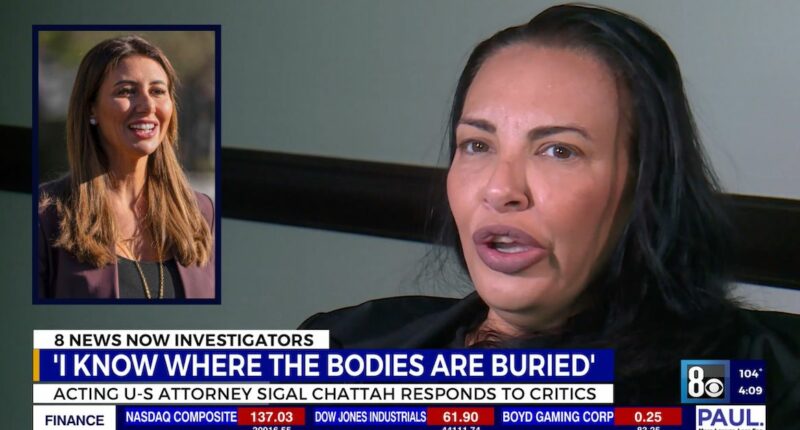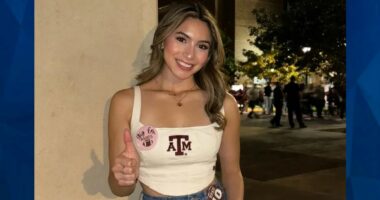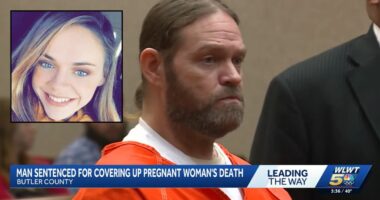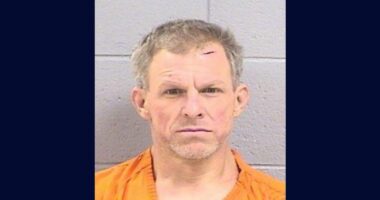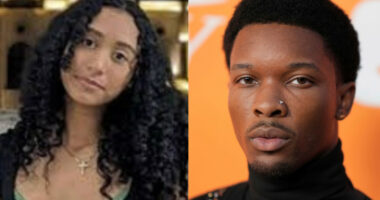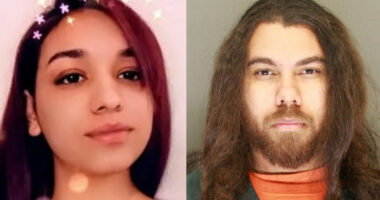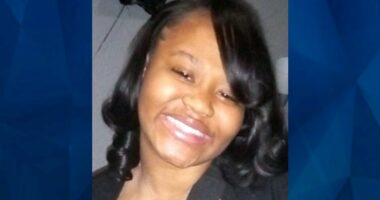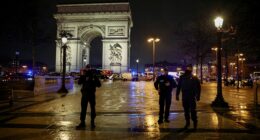Share this @internewscast.com
In the featured image: Alina Habba, selected by President Donald Trump as the interim U.S. Attorney for New Jersey, is seen arriving to address reporters outside the White House on March 26, 2025, in Washington (AP Photo/Mark Schiefelbein, File). Main: Acting U.S. Attorney Sigal Chattah, in a news interview from early August 2025, asserts that those challenging her appointment are intimidated, claiming she knows “where all the bodies are buried” (KLAS-TV).
Another interim U.S. attorney appointed by President Trump, and whose appointment has been legally questioned following a ruling against Alina Habba, is now encountering multiple challenges against her authority in federal court. Just a month ago, she had dismissed her critics, suggesting they were fearful of her insider knowledge.
Attorneys from the Federal Public Defender of Nevada for defendants Shamar Garcia, Devonte Jackson, and Giann Salazar Del Real have requested that a federal court dismiss the indictments brought under Sigal Chattah’s leadership. They aim to disqualify her “and any attorneys acting under her direction” from their cases and seek to end a “pattern” of Trump’s acting U.S. attorney appointments impacting “at least four other districts.”
In recent interviews with local CBS affiliate KLAS, Chattah has justified her appointment as “constitutional” and “properly executed.” Yet, following the footsteps of Habba, Chattah resigned from her interim role before reaching the 120-day limit, just to be reappointed by Trump and the DOJ under the Federal Vacancies Reform Act, potentially circumventing, “possibly indefinitely,” the constitutional necessity for permanent U.S. attorney appointments to include Senate advice and consent. This maneuver echoes instances in New Jersey and the contested appointment of John Sarcone in New York, which federal courts have yet to approve.
The challengers argue that the DOJ employed similar tactics for Chattah, as they did in extending Habba’s acting tenure, and suggest Chattah’s appointment should also be overturned due to its significant impact on the Appointments Clause of the Constitution.
“U.S. Attorneys possess sufficient authority such that they are considered principal officers for constitutional purposes. Despite Ms. Chattah retaining an acting title, the administration is essentially commandeering all of that power by extending her tenure—potentially indefinitely. If the administration’s interpretation of the law stands, then it necessitates Ms. Chattah’s confirmation by the Senate,” states the filing in Garcia’s case. “Regardless of how it is framed, Ms. Chattah cannot lawfully fulfill the duties of the acting U.S. Attorney for the District of Nevada. Consequently, the Court should dismiss the indictment against Mr. Garcia, given that it was dated and filed during Ms. Chattah’s period as an improperly appointed acting U.S. Attorney.”
“Alternatively, and at a minimum, the Court should disqualify Ms. Chattah and all those under the supervision at the United States Attorney’s Office for the District of Nevada from further proceedings in this matter,” the motion to dismiss and disqualify added.
The defendants urged the court to exercise its own authority to appoint a “proper interim U.S. Attorney” and to “determine” if Chattah’s “conduct as acting U.S. Attorney” has been “void” since July 26, when her interim term ended.
In the similar challenge of Habba’s authority, a criminal defendant failed to persuade a federal judge to toss out a drug-trafficking indictment, because it was not brought through Habba. Still, the judge found that the executive branch had used “a novel series of legal and personnel moves” to keep Habba in place that, taken together, show she is not “lawfully performing the functions and duties of the office of the United States Attorney for the District of New Jersey.” As another defendant’s indictment which was brought under Habba’s legally dubious authority was deemed “presumptively defective” yet not dismissible on that basis, the judge disqualified Habba from the two cases.
“I disqualify Ms. Habba from engaging in the prosecutions of the Girauds and Mr. Pina, and from supervising the same,” the judge said. “Any Assistant United States Attorney who prosecutes the Girauds or Mr. Pina under the supervision or authority of Ms. Habba in violation of my Order is similarly subject to disqualification.”
The Habba case is currently on appeal at the 3rd U.S. Circuit Court of Appeals, but this series of events illustrates how the challenges of Chattah’s authority could unfold in district court.
Federal court records reviewed by Law&Crime show that Senior U.S. District Judge David Campbell of Arizona was appointed Tuesday by the 9th U.S. Circuit Court of Appeals to preside over the three challenges and “similar motions in other cases.” There will be a status conference in Campbell’s court at 3 p.m. on Thursday.
What might “other cases” mean? The Federal Public Defender’s Office provided an answer in a footnote, stating that the Garcia, Jackson, and Salazar Del Real cases are the only currently known instances in the District of Nevada where indictments were brought on or after July 26:
At present, the defense is filing equivalent motions in what the defense understands to be the only three cases in this district for which the indictment was dated and filed on or after July 26, 2025, and the Court appointed the Federal Public Defender, District of Nevada, to represent the defendant: the instant case; United States v. Salazar Del Real, No. 2:25-cr-227; and United States v. Garcia, No. 2:25-cr-230. The Federal Public Defender may pursue this issue in other cases but at this time takes no position on whether the issue implicates cases where the indictments predate July 26.
Chattah, for her part, has claimed that a burgeoning movement against her is not legal but political in nature. She told KLAS-TV last month that her critics are “scared” that she knows “where all the bodies are buried” due to her work in private practice as a defense attorney.
“You know, a lot of these people, I know that they’re scared because I know where a lot of the bodies are buried because I come from the defense world,” Chattah said, after she had resigned and she stayed on anyway. “Without saying too much about my previous experience as a defense attorney, but when you played that side, you know where all the bodies are buried. Sometimes we even choose the location to bury them.”
